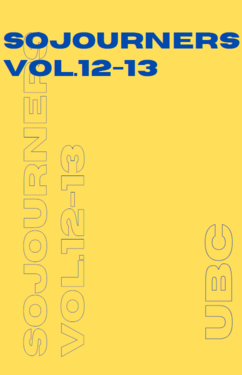Racialized People in the Spotlight: Public discourses about racism in Germany
DOI:
https://doi.org/10.14288/soj.v12i1.195984Abstract
Racialised people in Germany shared their experiences of everyday racism by gathering behind the anti-racist #MeTwo that is inspired by the anti-sexist #MeToo..Racialized people set out to correct common sense notions of Germany being a post-racial society after World War II and to disseminate their subjugated knowledge about contemporary racism in the country.
Based on racial categories that are salient in Germany, I investigate how a cross-section of German newspapers (Die Tageszeitung, Süddeutsche Zeitung, Frankfurter Allgemeine Zeitung, and Die Welt) covered this collective uprising. These racial categories are the backbone for my qualitative content analysis to identify how racism was negotiated in connection to the hashtag. In so doing, I seek to answer the following three questions: (1) What were the prevalent public discourses? (2) How were these discourses justified? (3) To what extent did the distribution of the discourses differ across media outlets?
There were three main discourses surrounding #MeTwo: Approximation of subjugated knowledge shared online, denial of the full extent of racism in Germany and explicit denial. The distribution across the four newspapers was not identical; Die Tageszeitung favoured approximation, while Die Welt centered around explicit denial of racism. Both Süddeutsche Zeitung and Frankfurter Allgemeine Zeitung mostly denied the full extent of racism in Germany.
Despite the qualitative differences between all three discourses with respect to the general conceptualisation of racism itself, none actually acknowledges the full extent of contemporary racism in Germany. For example, Black voices are rarely included in any of the discourses. Therefore, all three perpetuate the subjugation of the knowledge racialised people possess.
Downloads
Published
Issue
Section
License
Copyright (c) 2021 Simon Wastian

This work is licensed under a Creative Commons Attribution-NonCommercial 4.0 International License.

